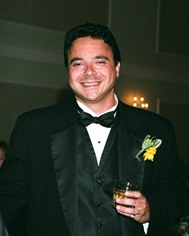 Like the title itself, Cameron Crowe’s film “Aloha” presents a conundrum: does the word Aloha mean hello or goodbye? The answer is both, depending on the context in which it’s used. For the film “Aloha,” the viewer is given a similar question: should the story define its characters or the characters define its story? Given the context of “Aloha’s” comedic melodrama storyline, you might think the former and you might be right. However, the beauty of Cameron Crowe’s writing and films has always been the latter: richly-drawn characters that seem to define its story. The fault of “Aloha” is that it holds onto too much of the former, overlooking the latter: Crowe forces “Aloha’s” characters to hit designated conventional plot points along a familiar rom-com context that ultimately gives them a lesser depth than what you would want or expect him to deliver.
Like the title itself, Cameron Crowe’s film “Aloha” presents a conundrum: does the word Aloha mean hello or goodbye? The answer is both, depending on the context in which it’s used. For the film “Aloha,” the viewer is given a similar question: should the story define its characters or the characters define its story? Given the context of “Aloha’s” comedic melodrama storyline, you might think the former and you might be right. However, the beauty of Cameron Crowe’s writing and films has always been the latter: richly-drawn characters that seem to define its story. The fault of “Aloha” is that it holds onto too much of the former, overlooking the latter: Crowe forces “Aloha’s” characters to hit designated conventional plot points along a familiar rom-com context that ultimately gives them a lesser depth than what you would want or expect him to deliver.
In “Aloha” we meet Brian Gilcrest (Bradley Cooper), a military contractor sent back to his former post in Hawaii to serve as a diplomat in acquiring King Kanahele’s permission for Gilcrest’s billionaire boss Carson Welch (Bill Murray) to launch a telecommunications satellite above the island. With Gilcrest’s Air Force officer liaison Allison Ng (Emma Stone) in tow, the two meet with the king. Ng’s quarter-Hawaiian ancestry, love for the Hawaiian people, and genuine promise of not allowing for any military weaponry to be involved or allow such military satellites to be launched in the future sways Kanahele’s trust and permission for the launch is granted. After negotiating land acquisition and other conditions with the king for his compliance, Gilcrest is given more information regarding the satellite and uncovers a mysterious payload within the satellite’s make-up. Added to his unease with this discovery, Gilcrest finds himself romantically drawn to Ng but wrestles with the confidential knowledge he now keeps from her. This dilemma is exacerbated by the ever-present appearance of Tracy Woodside (Rachel McAdams) – Gilcrest’s ex and now an officer’s wife who lives at the base. As Tracy reminds Gilcrest of what his military duty has taken from him (the loss of a romantic relationship and a potential for a future family life), he must find a way to learn from past mistakes in the wake of a budding romance with Ng and the secrets that his present assignment run the risk of ruining.
While there are scenes of nicely-written interactions between the characters of “Aloha” that give them a realistic depth, these scenes are few and far between. For every scene between Cooper and McAdams resolving their past relationship with brutal honesty in Tracy’s kitchen or Cooper and Stone connecting with one another as they talk in his hotel room after a night at the officer’s club, “Aloha” seems to force its characters along the points of a routine rom-com roadmap. The natural progression of characters’ interactions evident in Crowe’s best films- “Say Anything,” “Jerry Maguire,” “Almost Famous”- is lacking here: “Aloha” never makes you feel that an unconventional story based solely on scenes between its uniquely-developed characters is unfolding. What we’re left with is a film that appears to throw its characters into one another rather than have them gravitate toward each other.
More often than not, “Aloha” leaves its audience feeling as though they’re watching talented actors effortlessly guide their story-serving characters through scenes cobbled together with all-too-apparent melodrama. Despite the likability of its cast, we’ve been down this road before. While we might enjoy the company and the scenery might be pretty along the way, we ultimately want “Aloha” to take us somewhere new and interesting.
